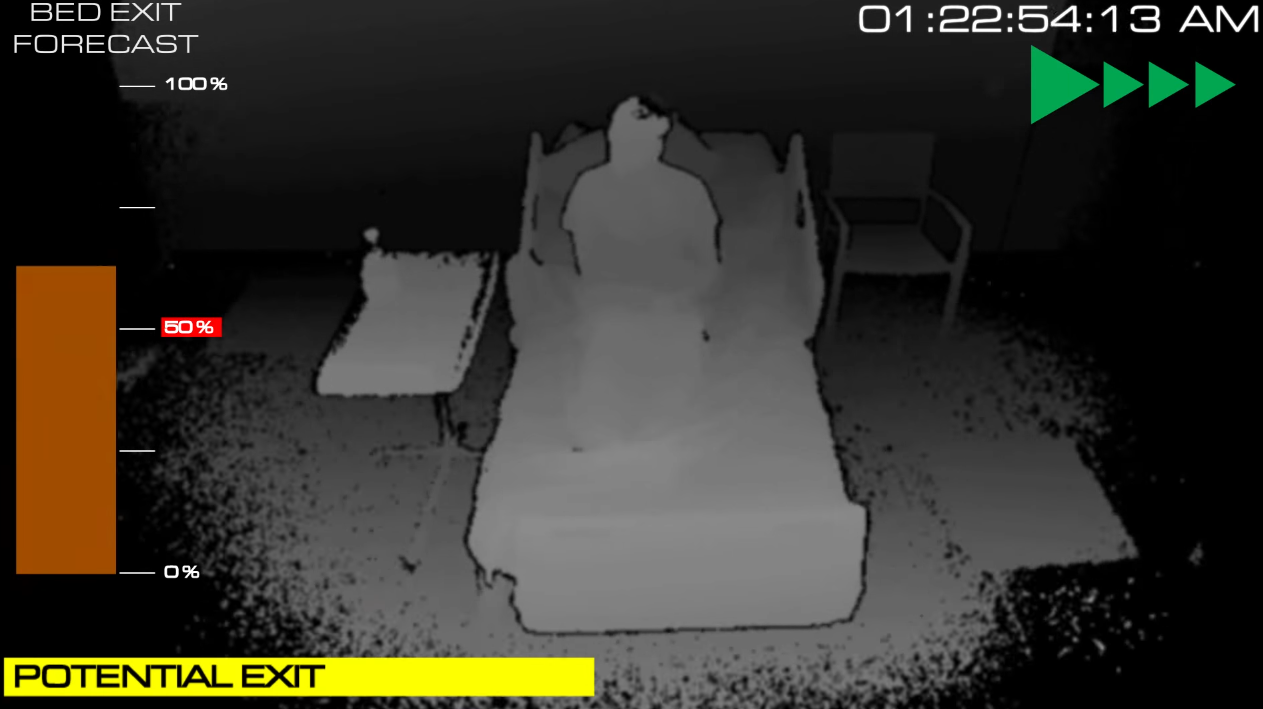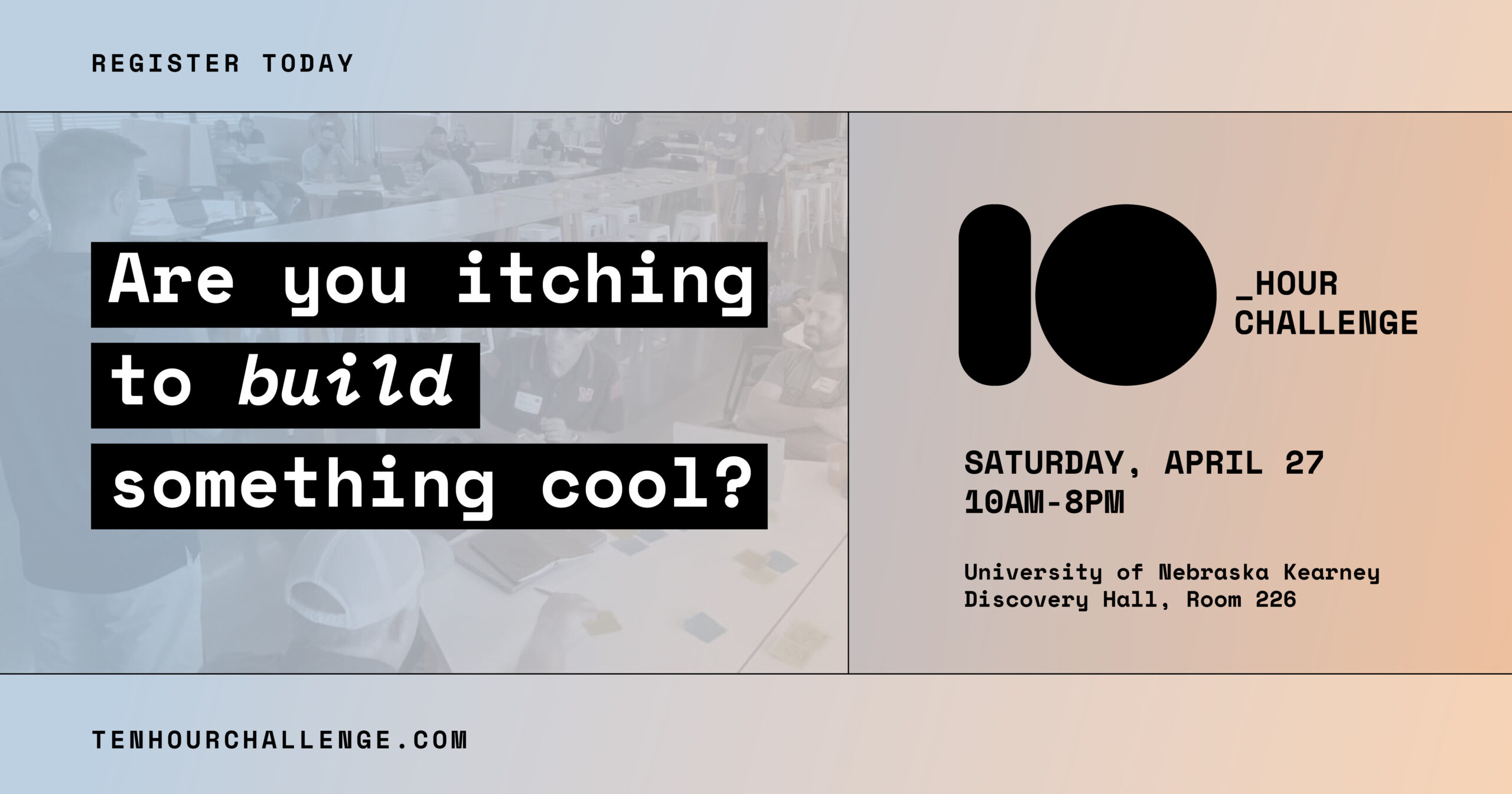A patient falling in a nursing home is considered a “never” event. It should never happen. But what if it does?
“It’s a big problem,” said Paul Bauer, Product Manager for Lincoln startup Ocuvera. “Medicare or Medicaid may not pay for care resulting from falls. Quality metrics may be impacted, bad things that can be really expensive.”
Ocuvera is working to mitigate the risk of patient falls through software connected to a 3D camera that alerts nurses when a patient is about to get out of bed. The system functions differently than other products that involve sensors in the bed itself.
“Smart beds, by the time they go off, it’s too late to prevent a fall,” Bauer said. “They also have a lot of false alarms. Alarm fatigue is a big concern.”
BECOME A SPONSOR
Join us in championing the narrative of success, resilience, and ingenuity that defines Nebraska’s startup community. Learn more »
How Ocuvera works
Instead of capturing conventional video, Ocuvera’s solution produces 3D depth imaging, recording shapes of objects and movements.
“Our software takes the signal from the camera and analyzes what’s going on,” Bauer said. “Find the bed, find the patient, and consistently monitor 24/7.”
Data collected during the monitoring process contribute to development of algorithms that can predict, with increasing accuracy, when a patient is about to get out of bed.
“Our expertise is in the algorithms to try and predict when people are about to exit the bed,” Bauer said. “We can send an alarm to prevent something bad from happening.”
The system does not require a staff person to be monitoring at a work station. Alarms are delivered directly to mobile devices carried by the nursing staff.
“Right now, we’re providing the devices, Android phones,” Bauer said. “Long-term we want to integrate with existing systems. The fewer devices, the better.”
“The algorithm is good enough”
Ocuvera is currently in product testing with hospitals in Nebraska.
“It’s about patients, nurses and their feedback,” Bauer said. “We’re working with local hospitals around Nebraska to test and validate the product.”
The feedback they have received so far has been positive.
“We’re really encouraged and excited by the initial results,” Bauer said. “At this point, it’s a matter of more patients, more nurses and more feedback to make it really useful.”
Feedback is leading to some enhancements to the system.
“There are always feature requests,” Bauer said. “We’ve had to build out our customization. We’re still refining that.”
For example, feedback indicated that nurses want the ability to set patient-specific alarms depending on how concerned they are with a particular patient.
“The software and algorithms are good enough,” Bauer said. “It’s just making them work the way nurses need them to work with specific patients.”
Powered by EliteForm talent
Ocuvera shares a platform and expertise with another Lincoln startup, EliteForm, a platform that provides real-time data analytics for athletes in the weight room. Both companies are part of the Nebraska Global portfolio.
“A lot of people on this team built EliteForm,” Bauer said. “We all have pride in EliteForm, and we enjoy staying in touch with that product.”
Paid pilots in 2017
When does Ocuvera plan to go to market?
“Our understanding of the road map in health care is first you do free pilots, then paid pilots, then to full sales of the system,” Bauer said. “Next year we’re hoping to move into the paid pilot phase.”
Bauer said the Ocuvera team is undergoing some transitions to ensure the product gets deployed, used and is making a difference.
“We’ve identified a few people who have the aptitude for attention to detail that we can use to identify trends in feedback from hospitals,” he said. “We’ve physically relocated some of our team members to another part of the office to reinforce the focus on being an external-facing employee.”
Bauer hopes the product is important enough that it will gain traction once the team proves they can impact the problem.
“If what we are doing works, if we can prevent a single fall, the system will have paid for itself,” he said.
—
Rod Armstrong is Vice President of Strategic Partnerships for AIM in Lincoln, Nebraska. He is a regular contributor to Silicon Prairie News.



